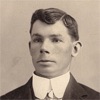Modern piano manufacturing needs serious change
What's wrong with modern piano manufacturing? For the vast majority of pianists there is only ONE keyboard size available, and it is designed for large (adult male) hands. This puts people with smaller hands at an obvious disadvantage.
http://www.paskpiano.org/index.html
People with smaller hands are more prone to injury (from twisting/contorting the hand to reach the notes).
http://www.paskpiano.org/need-for-narrower-keys.html
This was always my absolute biggest frustration with playing the piano. I have very small hands. I can barely reach the span of an octave on a modern piano.
My hands just barely span 7 inches. I am stunned to see where my span falls on this chart. This puts me in range of needing a child-size piano. I mean, gee, no wonder I always suffered so much frustration in playing.
http://www.steinbuhler.com/html/handsizepage.html
In the early 1800's, during the heyday of Chopin and Liszt, piano keyboards were scaled much smaller. Also there were pianos with even smaller keyboards that were intended specifically for women to play.
Here is a video about an 1848 Pleyel piano, which is the kind of piano Chopin had near the end of his life. At 45 seconds in, she talks about the size of the keys.
https://www.youtube.com/watch?v=_sBvZh_GI9A
I hadn't even realized this was the case. I had always assumed that piano composers must have always had large hand spans.
However...duh! Chopin was a very small, delicately built man. In fact, humans in general tended to be much shorter back then and had smaller frames.
Music back then was actually written for smaller pianos, and smaller hands! But nowadays, you have to have larger hands to play some of these pieces comfortably.
Beethoven composed on a keyboard with narrower keys, yet these regulations mean that a student would not be permitted to perform a Beethoven sonata on the very piano on which it was composed!
Examination boards need to take some responsibility for the fact that students may be taught techniques and repertoire that, on the standard keyboard, may result in pain and injury. Allowing reduced size keyboards in examinations will encourage teachers to start using them and parents to gradually follow their lead (See: Vision for the Future). This should result in a reduced drop-out rate among young pianists. Too many young people suffer from frustration and lack of self-esteem at not being able to progress satisfactorily despite the encouragement of their teachers, who should know that they have hands that are too small to allow them to ever reach more than moderate heights.
http://www.paskpiano.org/barriers-to-change.html
I feel so outraged by this. I used to think it was an accident of birth that I had such small hands. I thought there was something wrong with my hands, rather than there being something wrong with the size of the piano. Actually, there is not a damn thing wrong with my hands.
I offer you this age old advice: it's not the size that matters but how you use it. Perhaps it's time to switch to a real instrument, like a harpsichord, or sac-but, or an alphorn. ![]()
That being said, I understand how annoying it can be to find an instrument that "fits" you and I empathize (take that autism!).
edit: took out quote of OP.
I did not know about this. Now I feel resentful of the time I spent with aching hands while learning Chopin. ![]() I would feel so accomplished after mastering some of his monster chords.
I would feel so accomplished after mastering some of his monster chords.
(Also, I've seen some older pipe organ consoles with quite large keys; but that is a different topic.)
Here is some interesting data on hand spans.
http://www.smallpianokeyboards.org/how- ... hands.html
This is totally depressing...not only is playing a regular sized piano literally out of my reach, but finding one that is built to a smaller scale - much less being able to afford it - is out of reach for me as well.
The frustration I feel when trying to play music that I love...OMG...music that I technically "should" be able to play but my pinkies are constantly slipping off the keys.
No wonder I gave up playing for so many years...it makes me want to kill myself.
| Similar Topics | |
|---|---|
| A Speech Gene Seen Only In Modern Humans May Have Helped Us |
21 Feb 2025, 7:24 pm |
| incapable of change? |
12 Jan 2025, 6:25 am |
| coping with change |
01 Mar 2025, 12:37 am |
| ..what would it change if I knew I have autism? |
07 Dec 2024, 2:26 pm |







